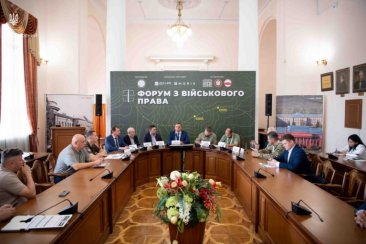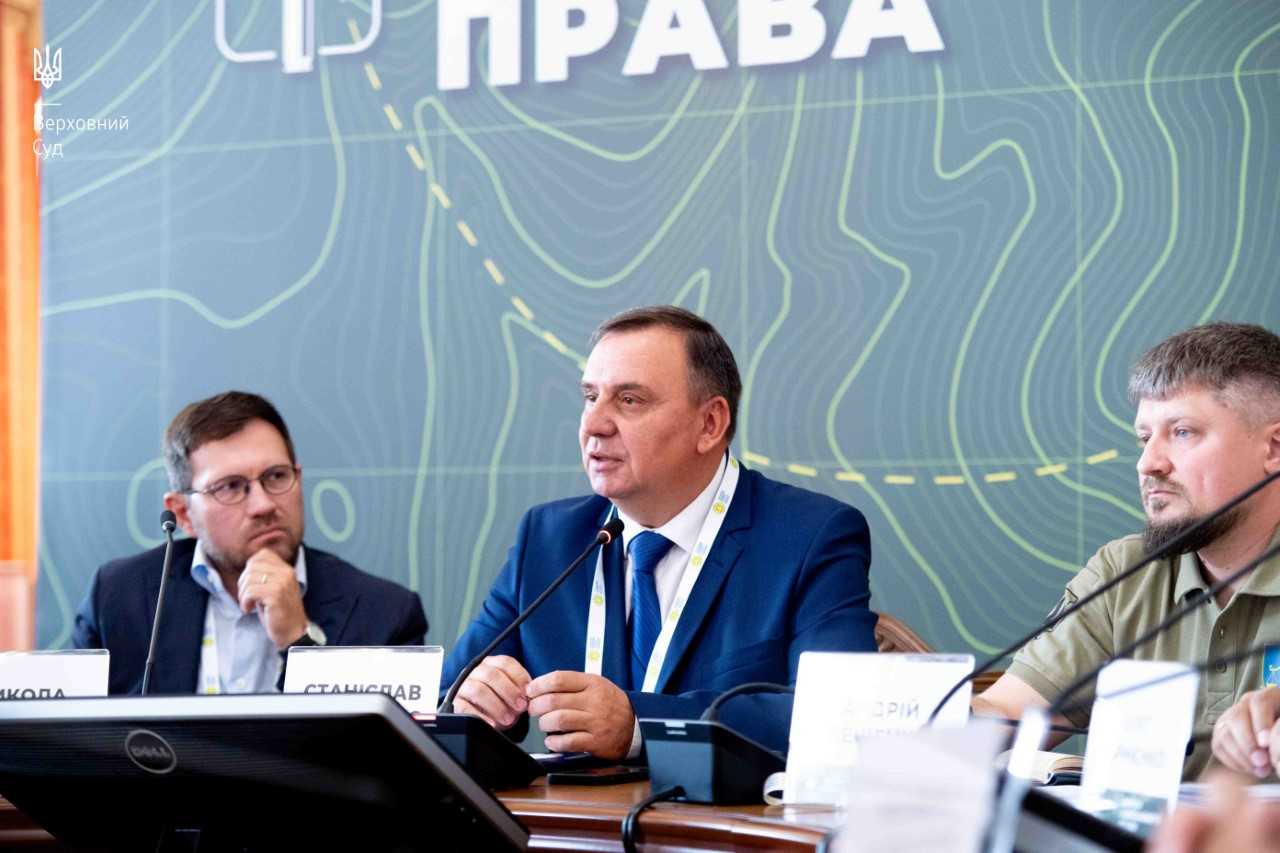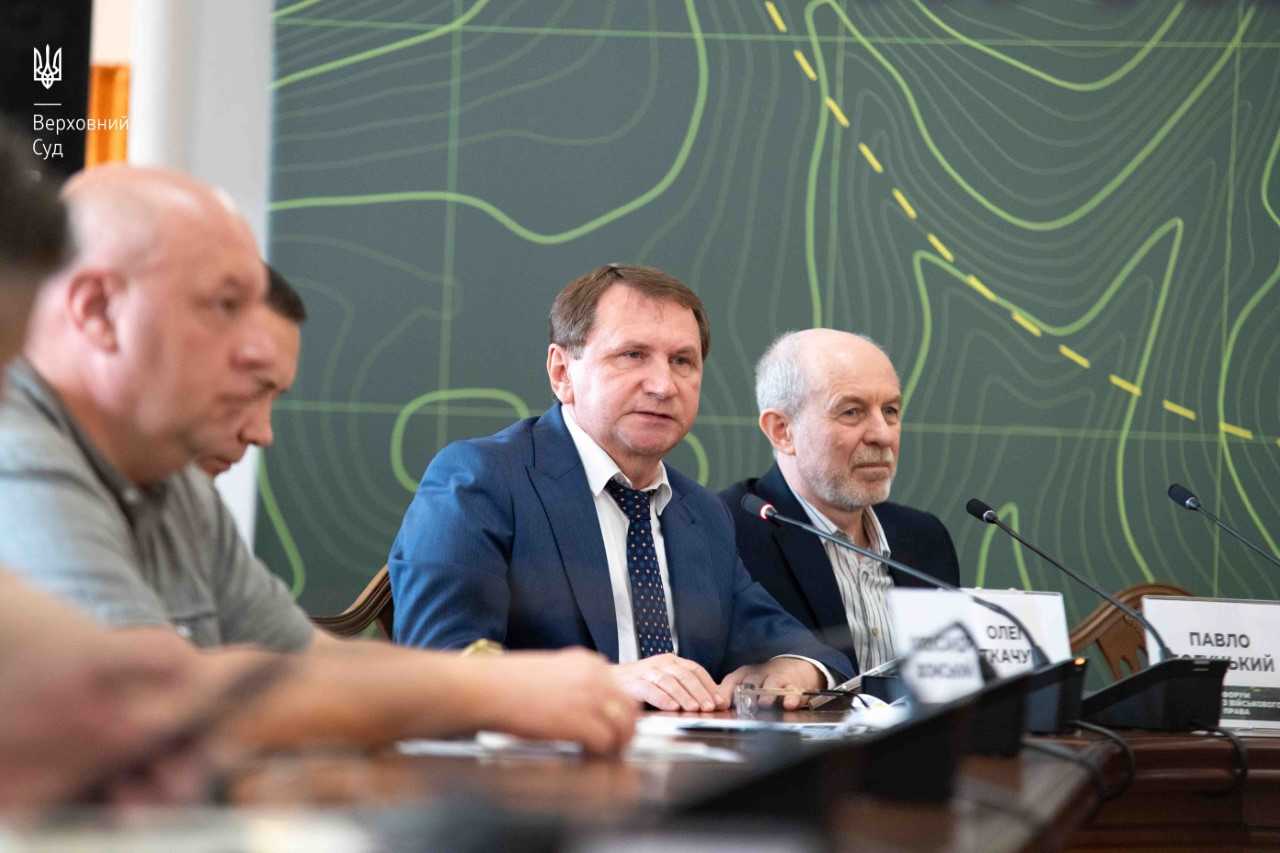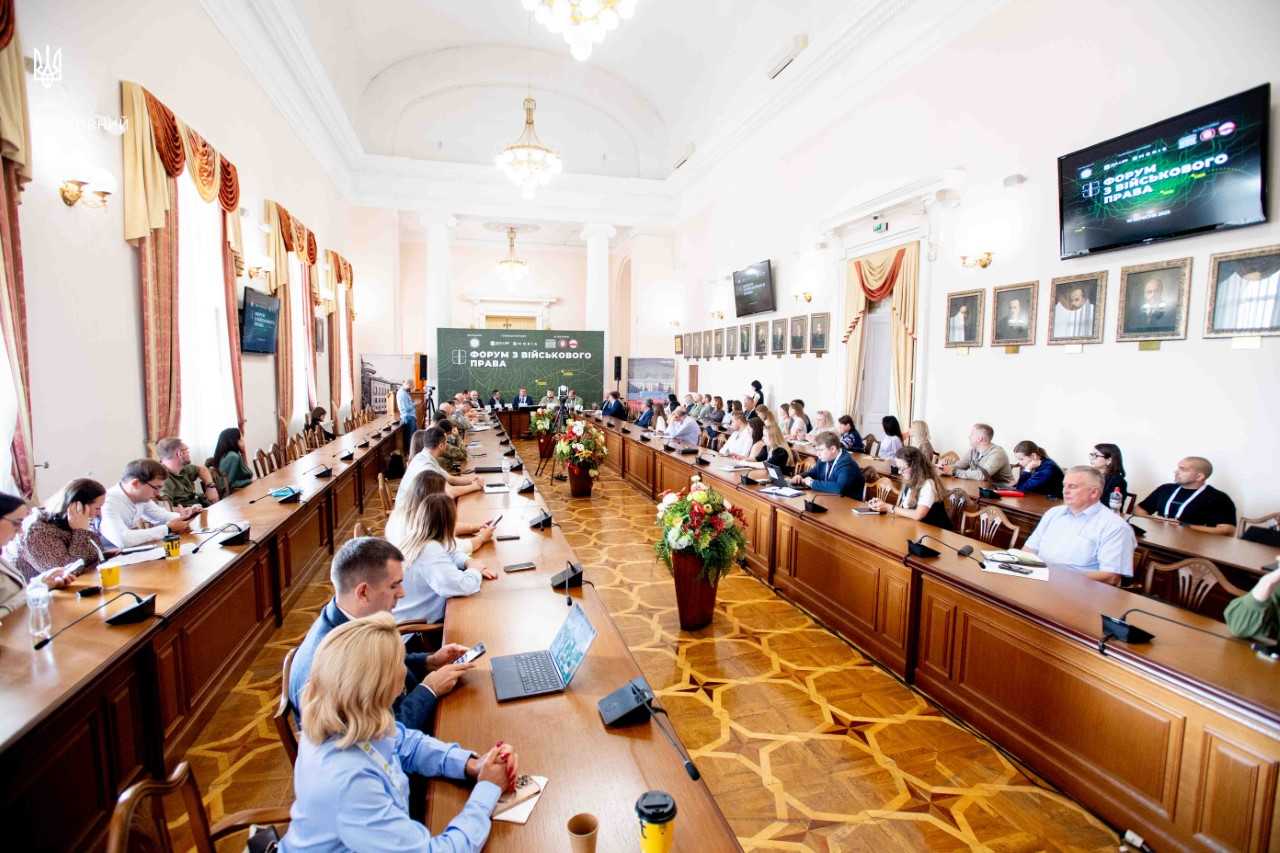Contact center of the Ukrainian Judiciary 044 207-35-46

Just a few years after the abolition of the system of military courts in Ukraine, the war began — a development that shed new light on the shortsightedness of that decision. However, since then, Ukraine’s legal system has reached a new level in studying military law and today possesses substantial achievements in this field as well as a developed body of judicial practice on many legal issues related to the war.
Since that time, discussions have emerged on how to improve the quality of adjudication in cases involving the application of military law norms. In the first months of the full-scale war, this debate reached a new level — the issue of restoring military justice was raised. For a long time, no concrete steps were taken in this direction, but eventually, in the spring of this year, relevant draft laws were registered in Parliament, and their conclusions are expected to be approved at the next meeting of the Plenum of the Supreme Court.
This was stated by Stanislav Kravchenko, President of the Supreme Court, during the First Forum on Military Law.
Within the legal community — and among judges in particular — there are differing views on the idea of establishing military courts. Some believe that the judicial system has already proven its ability to ensure high-quality adjudication of relevant categories of cases, and therefore the creation of specialized courts is unnecessary. Others, however, are convinced that there is indeed a need to restore military justice.

Moreover, debates continue regarding the structure of military courts, the categories of cases they should handle, and the model and format of their functioning.
According to Stanislav Kravchenko, all these aspects require thorough study and discussion — including within the framework of this Forum — in order to identify and implement the most effective solutions to the issues at hand.
In conclusion, the President of the Supreme Court emphasized that the topic under discussion is extremely relevant and vital for the development of military law, the national judicial system, and international law as a whole.
Grand Chamber Judge of the Supreme Court Oleh Tkachuk reminded participants that following the abolition of military courts, the events of recent years and the full-scale war waged by the Russian Federation against Ukraine have clearly demonstrated the need to restore this institution. According to the judge, jurisdictional issues in the military sphere have repeatedly been the subject of heated debate. Today, three draft laws have already been registered in the Verkhovna Rada of Ukraine: one concerning the specialization of judges and two concerning the restoration of military courts — which testifies to the seriousness and urgency of this issue.

Oleh Tkachuk emphasized that justice is essential even during wartime, as the courts remain the only authority empowered to resolve disputes and ensure the protection of citizens’ rights and freedoms. He noted that currently, the military sphere in Ukraine practically lacks its own institutions of justice and law enforcement, such as military prosecution offices, military courts, and military police. This situation often leads to crimes and offenses within the armed forces not receiving proper legal assessment, while service members are deprived of effective mechanisms to protect their rights.
At present, Ukraine’s general courts handle millions of cases each year, among which hundreds of thousands concern military personnel. In such circumstances, cases involving military crimes are often lost within the vast number of criminal and administrative proceedings, making their timely and high-quality consideration difficult.
According to the judge, the establishment of military courts is not merely a matter of punishing military crimes. Above all, it concerns ensuring that every service member, regardless of rank or place of service, has the opportunity to protect their social and personal rights — such as the right to leave, adequate financial support, medical care, or social guarantees for their families.
The judge also rejected arguments about excessive costs or lack of resources for creating a system of military courts, stressing that funding for the infrastructure of some courts that are currently not functioning is still being provided, and that protecting the rights of military personnel is a matter of national security. “A motivated army is an army protected by law. And every service member, whether on duty or receiving medical treatment, has the right to professional judicial protection,” concluded Oleh Tkachuk.

The event was organized by the Ukrainian Bar Association, in cooperation with Taras Shevchenko National University of Kyiv and the Institute of Lawmaking and Legal Expertise of the National Academy of Sciences of Ukraine.